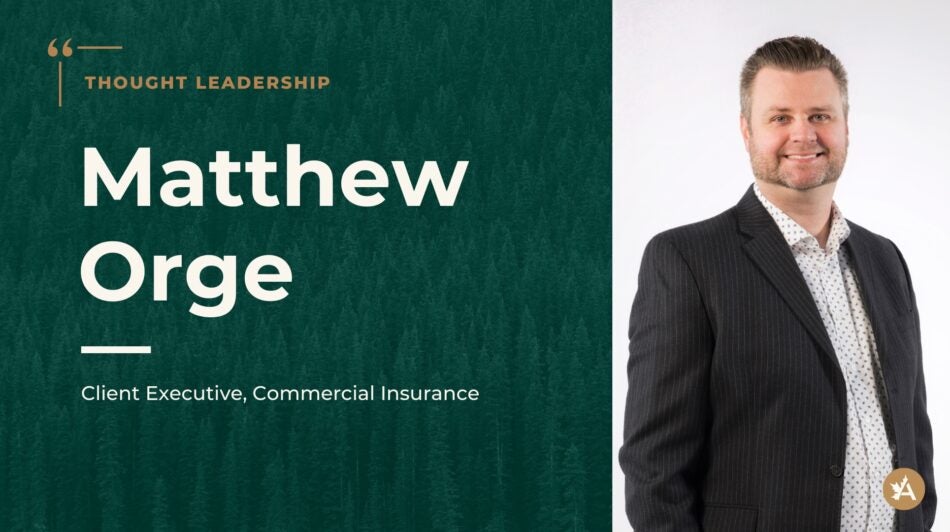If you are the leader of a religious organization, then you are aware of the impact that abuse allegations can have on your organization. Headlines regarding abuse and sexual misconduct are a regular occurrence in today’s media landscape and they can have lasting consequences for your organization.
While insurance plays a vital role in protecting your religious organization, true resilience comes from a combination of coverage, strong risk management and a culture of accountability.
What we mean by risk management practices
While nobody wants to think about the possibility of an incident involving abusive behaviour and sexual misconduct, it’s imperative that you have documented policies and procedures in place to help protect the vulnerable populations that you serve in your faith-based organization.
It’s not enough to simply organize volunteers or maintain administrative checklists. You must learn to think from a liability perspective: “What will we show a court if a claim is brought forward?”
Risk management practices demonstrate that you were aware of potential dangers and took documented steps to reduce them. They can include:
- Requiring all employees and volunteers to provide a police background check and vulnerable sector check at least once every three years.
- Providing annual abuse prevention training for staff and volunteers.
- Creating an internal protocol for documenting abuse prevention tactics.
- Having a “two-adult rule” and/or open-door policy for programs involving children and other vulnerable people both on- and off-site.
- Putting documented guidelines in place that require all suspected inappropriate behaviour and/or alleged incidents to be reported and followed up on.
- Having a three-month probationary period for all new volunteers and staff.
Mid-sized organizations particularly those with less than 1,000 attendees, are among the most vulnerable. They often operate without formalized risk management structures but face significant public and legal exposure. Implementing strong practices early can make a crucial difference.
Creating a culture of accountability
As the leader of the organization, you play a key role in helping to create a culture of accountability where staff and volunteers can feel comfortable reporting suspected instances of abuse.
Regular abuse prevention training helps participants to identify abuse warning signs, grooming situations, abuse prevention strategies and crisis response. This in turn empowers staff and volunteers within your organization to better help and support the vulnerable people who are part of your congregation.
You should also have a designated compliance person who is responsible for all the risk management compliance documentation and procedures within your organization.
What is and isn’t covered by abuse liability insurance
Abuse claims are among the most expensive and devastating liability events that a faith community can experience. Not only can they lead to lawsuits, but they also cause severe reputational harm. However, abuse liability coverage does not always mean you are protected.
Abuse liability is meant to cover the legal costs for the defence of your employees and volunteers when your organization is alleged to be legally liable. What we have found over the years is that many religious organizations don’t fully understand what their insurance policies cover and how their policy might be void in the event of a claim.
Instances where your abuse liability can be voided include:
- Hiring or retaining employees and volunteers with prior relevant convictions.
- Failing to report incidents of abuse to the authorities.
- Misrepresenting your policies and procedures during the application process.
It’s important to note your abuse liability insurance coverage depends on your compliance with the risk management practices you confirmed in your application. If these “warranties” are breached, either intentionally or accidentally, your coverage may not respond in the event of a claim.
For example, in 2024, a diocese in Canada was ordered to pay $104 million in settlements to victims of sexual abuse. Following the ruling, the clergy lost its legal fight to have its insurance company cover some of the costs due to a failure to disclose abuse events.
Protecting your ministry for the long-term
Our team at Acera Insurance has been insuring religious and non-profit organizations for more than 60 years. We don’t just issue insurance policies — we partner with you to build a safer, stronger organization. We do this by guiding you through industry best practices, reviewing your risk management strategies and preparing you to respond effectively in the event of a claim.
Risk management isn’t just about compliance — it’s about stewardship. By combining a strong insurance strategy with consistent internal safeguards, you can protect your congregation, your mission and your legacy for generations to come.
Matthew Orge bio
Matthew Orge is an Account Executive working out of Acera Insurance’s central Alberta offices. He brings more than five years experience developing and structuring risk management programs for hospitality risks, non-profit sectors and is proud to be the Acera MySchool executive for Alberta.
Information and services provided by Acera Insurance, Acera Benefits and any other tradename and/or subsidiary or affiliate of Acera Insurance Services Ltd. (“Acera”), should not be considered legal, tax, or financial advice. While we strive to provide accurate and up-to-date information, we recommend consulting a qualified financial planner, lawyer, accountant, tax advisor or other professional for advice specific to your situation. Tax, employment, pension, disability and investment laws and regulations vary by jurisdiction and are subject to change. Acera is not responsible for any decisions made based on the information provided.

